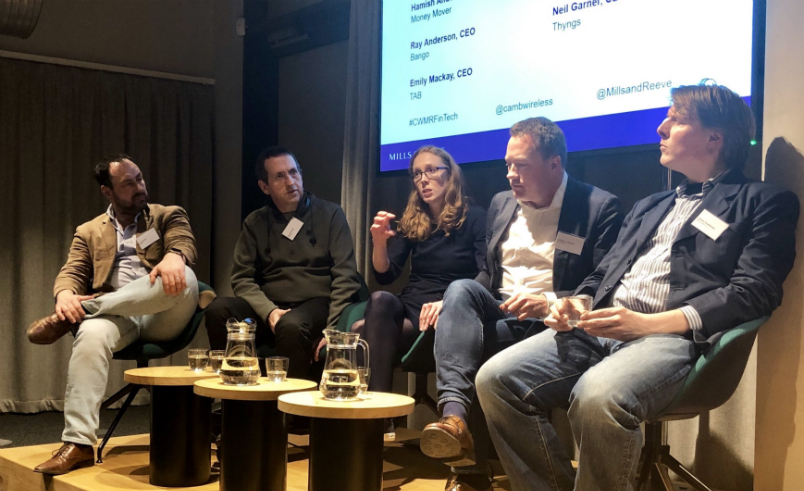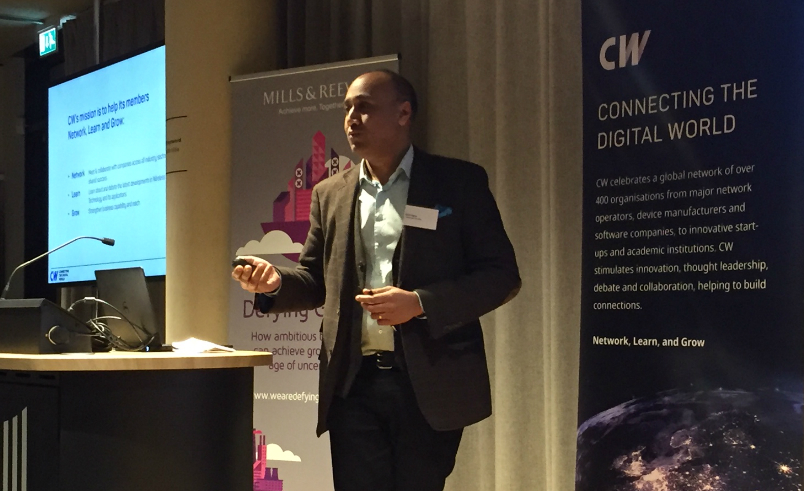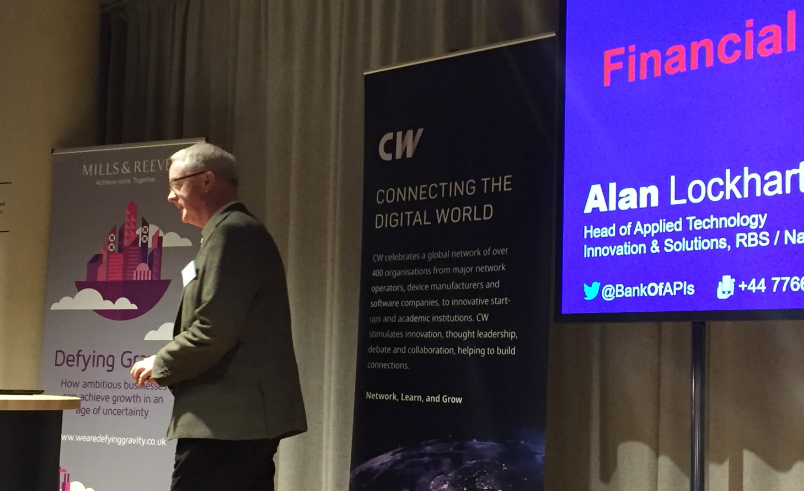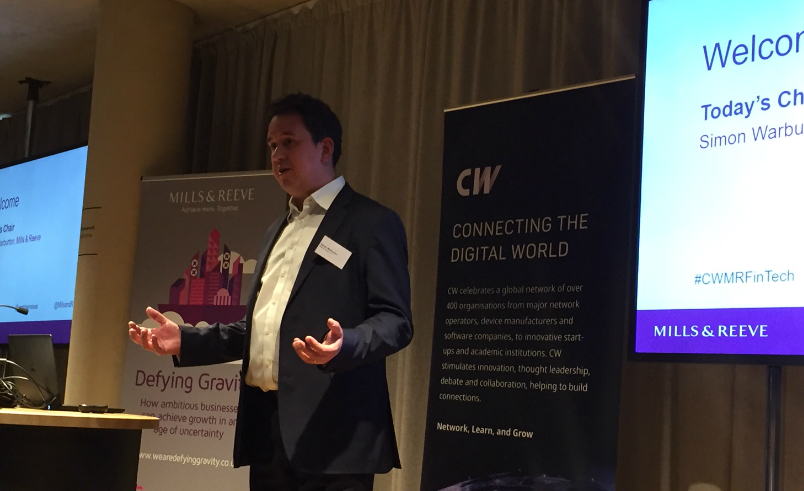The Future of Financial Data
Posted on the 27th February 2018 by Hamish Anderson in Founders' blog, Founder Insights

Photo L-R: Neil Garner (Thyngs), Ray Anderson (Bango), Emily Mackay (TAB), Hamish Anderson (Money Mover), Jeremy Sosabowski (AlgoDynamix)
On Thursday 22nd February, I was invited by law firm Mills & Reeve and international technology community Cambridge Wireless to participate in a panel discussion. The panel, which was formed of CEOs from Cambridge-based financial technology (Fintech) firms was to debate the Future of Financial Data, specifically how recent regulatory changes would impact the way financial firms hold and use data.
The evening panel discussion was held at the new Bradfield Centre on the Cambridge Science Park, and also featured Alan Lockhart, Royal Bank of Scotland’s open banking guru. Alan, who leads technology innovation and solutions at the bank, had been asked to talk about the threats and opportunities presented by the second Payment Services Directive (PSD 2) which requires banks to provide access to their customer account details via a technology interface (API).
 Abhi Naha, Cambridge Wireless
Abhi Naha, Cambridge Wireless
After drinks and canapés, audience and panellists were shown into the Bradfield’s stylish auditorium to be introduced by our hosts Simon Warburton of Mills & Reeve, and Abhi Naha, Chief Commercial Officer of Cambridge Wireless. They set the stage for the evening, questioning who will control financial data and how new Fintech products will harness this data, how this will impact on the customer relationship and the power of consumer, and whether or not consumers will wish to engage.

Alan Lockhart then took centre stage explaining how RBS is embracing open banking and assessing how APIs can help it engage with its customers. Whether they like it or not, they have to embrace a world with open banking, and the banks will serve themselves best if they become consumers of this data rather than just providers. Alan illustrated this by discussing an RBS-designed app, currently in beta, which monitors personal expenditure.
 Simon Warburton (Mills & Reeve)
Simon Warburton (Mills & Reeve)
The baton then passed to Simon Warburton once again, who was moderating the Fintech Panel. Joining Simon and me on stage were the CEOs of local firms, Ray Anderson (Bango), Neil Garner (Thyngs), Emily Mackay (TAB) and Jeremy Sosabowski (AlgoDynamix). The panel discussion was lively and there were certainly differences of opinion. I thought I’d take a look at the questions put to the panel and how they relate to Money Mover, specifically.
Simon first asked how we currently use data. Money Mover’s ethos is to de-mystify international payments and cross-currency transfers. Inherent in this is a focus on UI and UX, simplifying processes, approaching transactions from the user’s perspective and communicating clearly.
We use data to verify our users and to secure their transactions, and to allow us to carry out their transactions in accordance with their wishes. Our policy is to hold the minimum amount of data we need to achieve the ends that our users desire. If we need to do something new or different, we ask for more data - it’s what we call a progressive approach.
We also think very carefully about how gather data, always asking ourselves, “Is there a single question I can ask which can enable me to do everything the user wants me to do, even if it means me accessing other databases to bring in data that I would otherwise have needed to ask our user?”. An example of this is employing a direct connection to the database of the local equivalent of Companies House in order to set up a business using simply a company name or registration number.
So what future opportunities do we see for further data use by Money Mover, and more widely? Open banking opens the door to a raft of potential benefits. Improved customer experience, enhanced fraud prevention and new products and services. It also opens up sustainable service models for previously under-served markets.
By way of a simple example, our Payments Review service could soon be fully automated and created instantly and highly accurately using actual payment data from our users’ accounts. We’re also looking at things like predictive analytics – we know when businesses make their payments, which currencies, countries, how much, and to whom. How can we help our users do this better? Can we combine data with machine learning - does tweaking the time or day when users make payments mean that they save money? Can payments be aggregated within a business to improve efficiency? Can we optimise the payment routing to make the payment faster or cheaper? Can we analyse payment patterns to remind users when payments may be due?
However, PSD 2 and open banking does not give Fintechs carte blanche to use customer data with abandon. Whether data is provided by the user, observed, inferred or gathered by third parties, it’s vital to ensure that it is protected and that the person which the data refers to gives permission for its use. This is very much the focus of another new piece of regulation - the EU’s General Data Protection Regulation (GDPR) – which comes into effect in May. Doubtless innovative businesses will spend much time in the months to come balancing the demands of PSD2 and GDPR.
I wanted to thank both Mills & Reeves and Cambridge Wireless for organising such a well-produced event, which provoked many thoughtful questions from a knowledgeable and engaged audience.